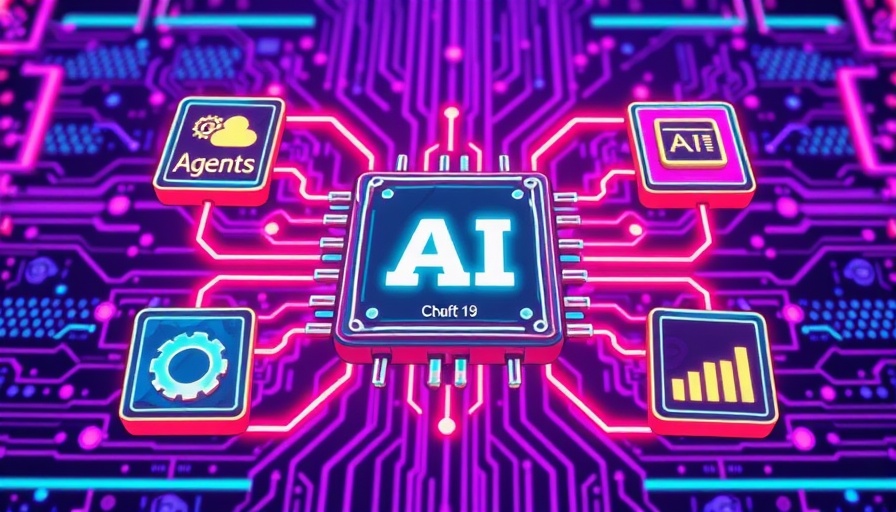
AI Competition: Understanding the Five Vectors Shaping the Landscape
The recent week has been filled with significant developments in the world of artificial intelligence, highlighted by three major events: Microsoft Build, Google IO, and Anthropic's Code with Claude conference. Each of these gatherings illustrates the vibrant competition across five critical vectors in the AI market: consumer, enterprise, benchmarks, coding, and agents. As business owners, understanding these dynamics is vital for leveraging AI's potential in your operations.
In 'The Five Vectors of AI Competition', the discussion dives into the competitive landscape of AI, prompting us to analyze its implications for businesses.
The Battle for Consumer Engagement
Leading the pack in consumer engagement is OpenAI, boasting an impressive estimated 800 million active users weekly, driven by their popular ChatGPT model and recent features like enhanced image generation. This significant lead places OpenAI in a favorable position, as many users now equate 'AI' with their brand. For businesses, this represents a pivotal opportunity: how can you engage with these users or utilize their popular tools for your business advantage?
Meanwhile, Google is actively trying to reclaim its consumer throne with the innovative Gemini models. However, questions linger regarding user engagement and whether their vast user base translates to meaningful interactions. For business leaders, this creates a dilemma: do you adopt the established tools like ChatGPT or experiment with emerging options? Your choice could shape your market positioning.
The Enterprise Race: Who Will Stay Ahead?
Interestingly, while OpenAI leads in consumer use, the enterprise space seems to be a different battlefield. A recent report noted that the adoption of OpenAI's business subscription more than doubled recently, indicating strong corporate interest. On the other hand, Google has fallen behind significantly, implying that their enterprise strategy might need reevaluation.
For business owners, this shift is a call to action. Leveraging AI tools for streamlining operations or enhancing productivity is now more critical than ever. Do you really understand how AI can transform your business operations? Now is the time to dive deeper into these tools and capitalize on the benefits they offer.
Coding Agents: A Key Differentiator
As coding becomes an increasingly essential use case for businesses, tools like OpenAI's Codex emerge as game changers. Codex is designed to produce cleaner code efficiently, democratizing access to software development. This means that your business could harness the power of AI to automate various coding tasks, saving additional time and resources.
Consider this: how can you integrate such a coding agent into your workflows? The potential for transforming operational efficiency is monumental, and understanding how to adopt Codex within your organization might be the next step in optimizing your technological edge.
Understanding Benchmarks: Importance and Limitations
Benchmarks have long been a significant measure of an AI tool's efficacy. However, there is a debate on their relevance depending on specific use cases. Users often cite that while certain models score poorly in tests, real-world application tells a different story. As a business owner, it's essential to grasp that what might work in practice could differ dramatically from what benchmarks suggest. Don’t get solely hung up on scores; instead, focus on how these tools perform in your unique operational environment.
Agents and Their Role in Future AI Development
Platforms like Anthropic's Model Context Protocol (MCP) play a crucial role in enhancing agent capabilities. As companies innovate in this area, businesses must be ready to adapt and leverage these advancements. Having effective agents working for you—whether in customer service or task management—could significantly enhance productivity. Your understanding of how these models can be used will be key as they evolve.
In conclusion, as the landscape of AI develops rapidly, business owners must proactively engage with these emerging tools and technologies to stay competitive. Understanding where companies like OpenAI, Google, and Anthropic stand can influence your decisions and strategies. The potential of AI is vast—don't miss the opportunity to start using AI now for your business growth!
 Add Row
Add Row  Add
Add 




Write A Comment